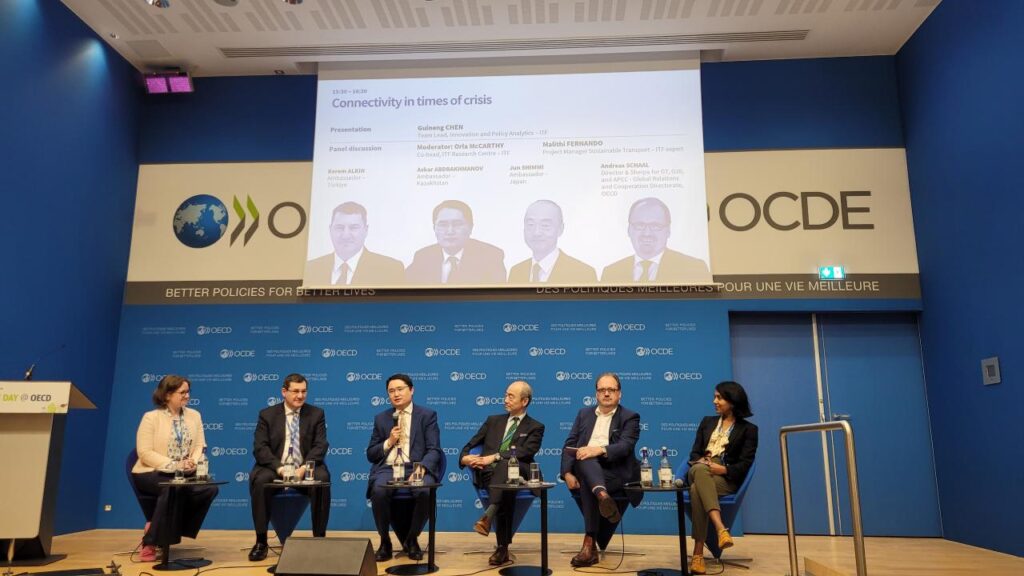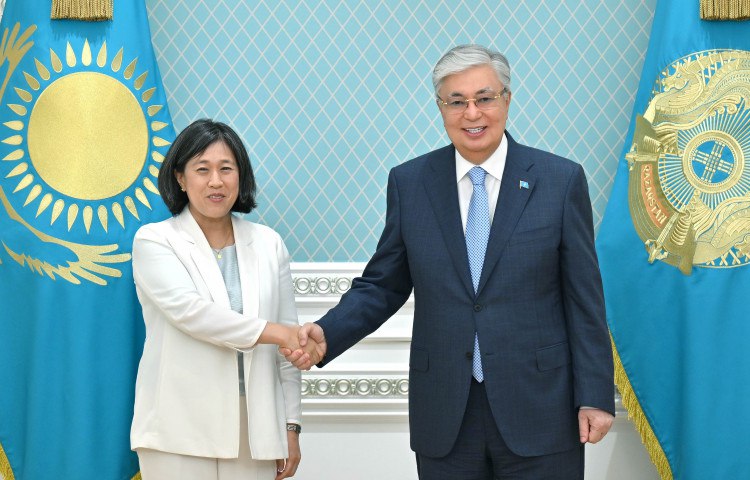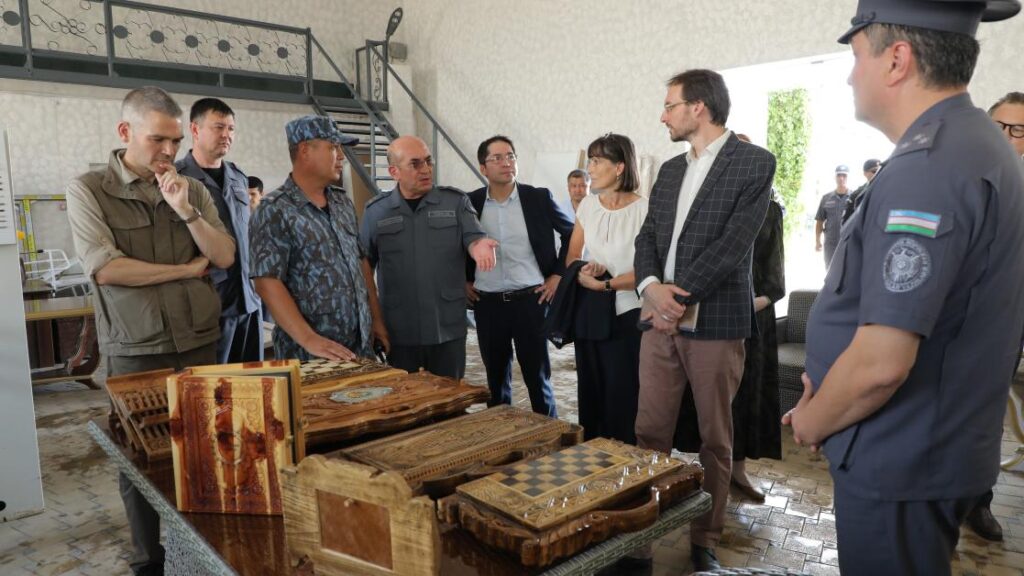Kazakhstan Pushes New Measures to Utilize its Transit Potential
On June 20, Permanent Delegate of Kazakhstan to International Organizations in Paris, Askar Abdrakhmanov, attended the International Transport Forum (ITF) Day at the Organization for Economic Co-operation and Development (OECD) headquarters.
In his presentation on “Connectivity in Times of Crisis,” Ambassador Abdrakhmanov focused on Kazakhstan’s measures to further develop its transport infrastructure and international freight transportation, and Astana’s efforts to develop transport cooperation with the country’s neighbouring states.
Regarding the potential of both old and new routes, Abdrakhmanov highlighted the construction of second tracks on the Dostyk – Moynty railway on the Kazakhstan and China border, a container hub and dredging projects at Aktau and Kuryk seaports, a new Darbaza – Maktaral railway line with further access through Uzbekistan, Turkmenistan and Iran to the Persian Gulf and the Indian Ocean, and functioning the eastern branches of the North-South corridor.
Special attention was paid to the Trans-Caspian International Transport Route (TITR), widely known as the Middle Corridor. He emphasized the importance of the recent joint government venture to establish a single, unified operation of cargo transportation along the Middle Corridor, as well as the launch of the TITR Coordination Platform with the participation of Central Asian states, the South Caucasus, and the European Commission.
“The current geopolitical situation has created new economic and logistical challenges for Kazakhstan and other countries in the region, and the answers to them lie in closer cooperation with our neighbours and international partners,” stated the Kazakh diplomat.
The International Transport Forum (ITF) at the OECD is an intergovernmental organization with 69 member countries which serves as a think tank for transport policy and organizes annual summits of transport ministers. Kazakhstan has been an ITF member since 2017.








